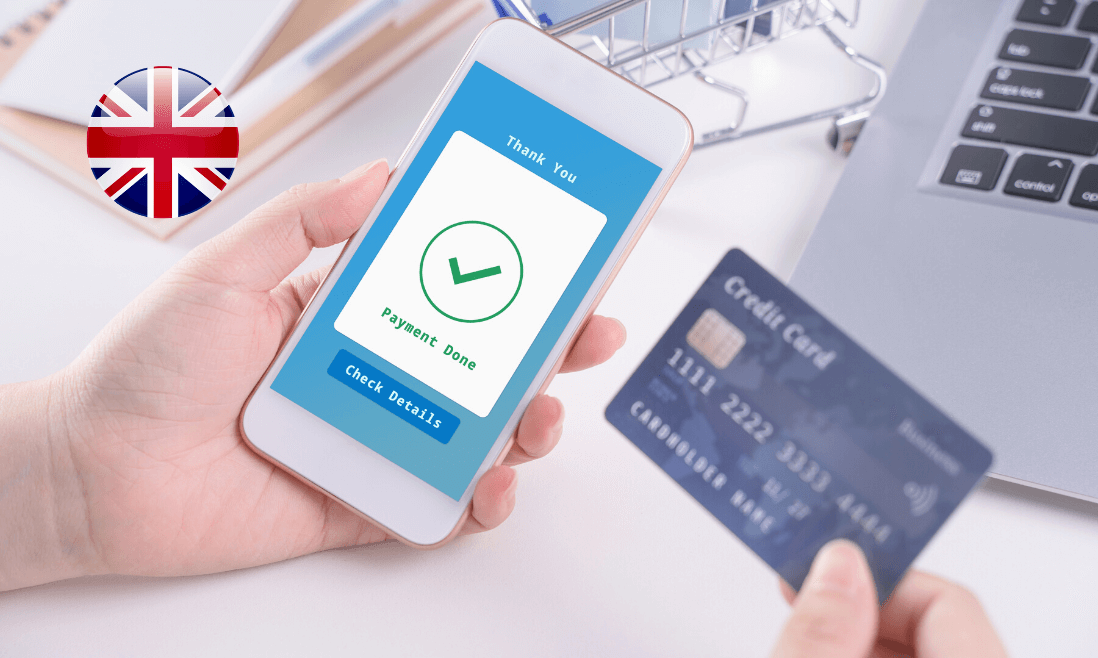Are you wondering which online payment gateway is the best choice for your UK business in 2024? As the digital world grows, making the right choice is crucial for your success.
In this blog post, we’ll guide you through the leading options. We’ll discuss each one’s fees, security, integration ease, and payment methods. Our goal is to give you clear, current details to help you decide what’s best for your business.
Whether you’re just starting or looking to switch, join us as we explore the top gateways shaping the UK’s online payment landscape.
Contents
1. Stripe
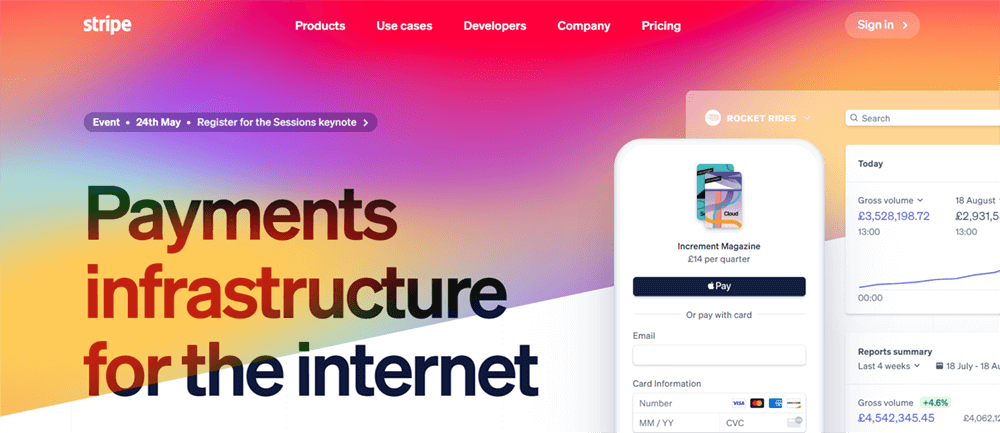
Stripe has rapidly become one of the most popular payment gateways globally, offering an extensive range of features and tools designed to simplify online payments for businesses of all sizes. Known for its innovative and developer-friendly platform, Stripe provides robust solutions for handling transactions, securing customer data, and expanding payment options.
Ease of Integration
Stripe offers a variety of integration options to cater to different business needs. From no-code solutions like Payment Links and Invoicing, which are managed directly via the Stripe Dashboard, to low-code options such as Checkout and Payment Element, which provide more control and customization.
For those seeking a more tailored approach, Stripe’s comprehensive API and extensive documentation allow for a high degree of customization, making it a preferred choice for developers. Whether you’re looking to integrate a simple payment form or build a complex payment system, Stripe’s tools are designed to reduce the complexity and time required.
Security Measures
Stripe takes security seriously and adheres to the highest level of PCI compliance. For businesses using Stripe’s pre-built integrations like Elements or Checkout, Stripe simplifies the compliance process, often reducing the burden to a simple self-assessment form.
All card numbers are encrypted at rest with AES-256, and decryption keys are stored on separate machines. Stripe’s infrastructure for storing, decrypting, and transmitting card numbers is isolated from its primary services, ensuring an extra layer of security.
Transaction Fees
Stripe’s standard pricing is straightforward – 2.9% + 30¢ per successful charge for domestic cards. This clear, pay-as-you-go pricing model means there are no setup fees, monthly fees, or hidden charges, making it an attractive option for businesses of various sizes.
For businesses with larger volumes or unique models, Stripe offers custom packages with volume discounts, multi-product discounts, and country-specific rates. This flexibility allows businesses to scale while keeping costs in line with their growth.
2. PayPal

PayPal is one of the world’s most recognized and widely used payment gateways, offering a range of solutions designed to facilitate easy and secure transactions online. It’s known for its simplicity, wide acceptance, and a strong focus on user security. With options for both personal and business use, PayPal enables millions to securely conduct transactions on a global scale.
Ease of Integration
PayPal offers HTML buttons that are incredibly easy to integrate. Businesses can log in to the PayPal website, create, and customize a payment button, then simply copy and paste the HTML code snippet onto their site. This is ideal for those with limited web programming skills or small businesses with a modest number of products.
For businesses with more complex needs or a larger inventory, PayPal provides a custom integration option using the cart upload command. This is more suited to those with web programming expertise and allows for a tailored shopping cart experience.
Security Measures
PayPal monitors transactions and activities across its platform and millions of merchant sites globally to help protect accounts and keep data secure. Transactions and payments are encrypted, ensuring that financial information is kept secure and private.
Eligible purchases made through PayPal are protected at no extra cost, providing buyers with added peace of mind. In cases where an item doesn’t arrive or differs significantly from its description, PayPal offers help to get reimbursed.
Transaction Fees
PayPal’s fees typically involve a percentage of the transaction amount plus a fixed fee. The exact rates can vary based on the type of transaction, the countries involved, and whether the payment is domestic or international.
It’s important for users to understand the specific conditions that apply to their transactions, as fees can vary based on factors like currency conversion and cross-border payments. Users should consult PayPal’s detailed merchant fees page for the most accurate and detailed fee structure.
3. Worldpay
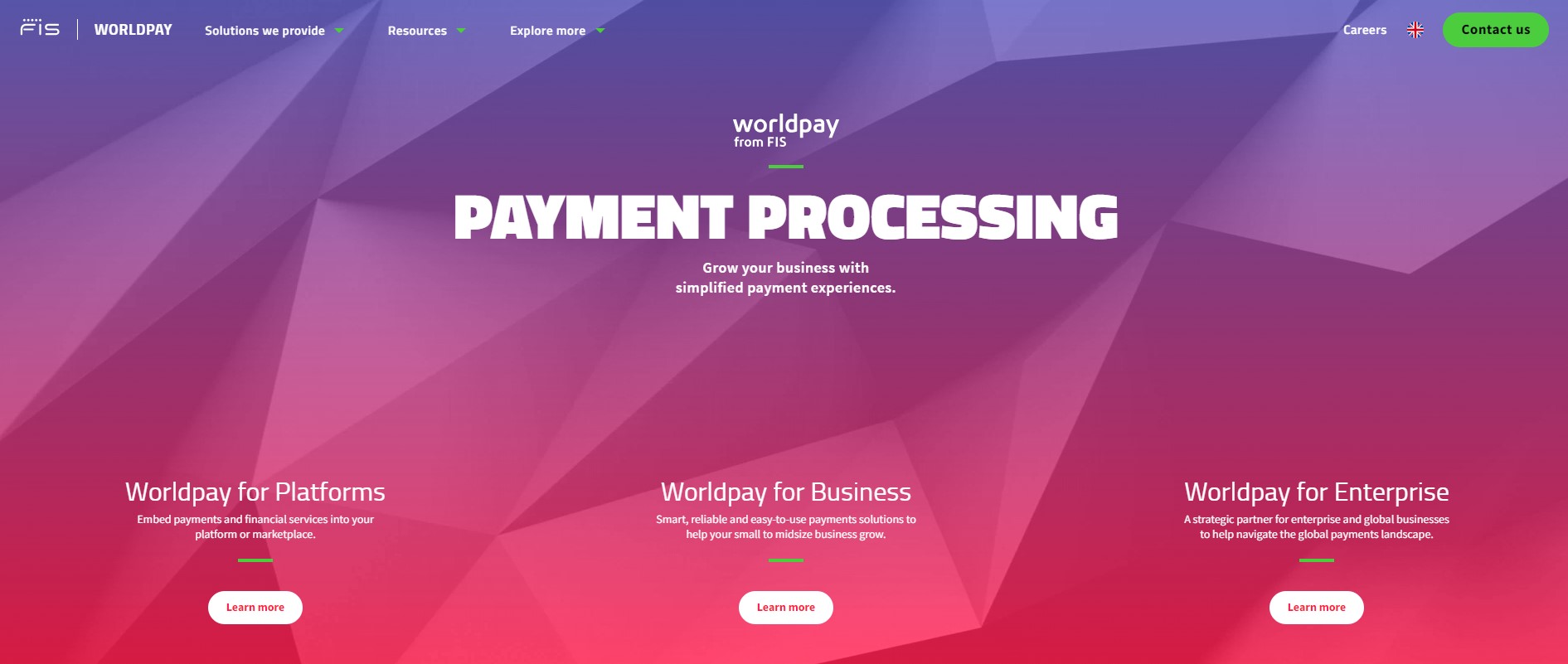
Worldpay is a renowned payment gateway offering a comprehensive range of services to businesses worldwide. As one of the leading providers, it facilitates secure transactions and helps merchants expand their payment options. Known for its reliability and extensive network, Worldpay is a preferred choice for businesses looking to scale and provide various payment methods to their customers.
Ease of Integration
Merchants can integrate a “buy this” button on their site for single or multiple products using HTML coding provided by Worldpay. The code includes mandatory parameters like installation ID, product ID, amount, and currency, ensuring a secure and customized transaction process.
Worldpay emphasizes the importance of testing transactions in a test environment before going live. After a successful test and a system check, merchants can switch to live mode by updating their HTML code as instructed, ensuring everything runs smoothly for actual transactions.
Security Measures
As a leading payment gateway, Worldpay commits to high-security standards to protect merchants and their customers. While the specific document for security best practices wasn’t provided, standard industry practices usually include:
- Encryption and Compliance: Secure transactions with advanced encryption methods and adherence to international compliance standards like PCI DSS.
- Fraud Prevention: Robust fraud monitoring and prevention tools to detect and manage suspicious activities.
- Data Protection: Measures to ensure customer and transaction data are securely handled and stored.
Transaction Fees
Worldpay’s transaction fees are structured to accommodate businesses of various sizes and types. The specific details weren’t provided, but typically, Worldpay offers a combination of a percentage of the transaction amount plus a fixed fee, varying based on the type of transaction and card used.
For businesses with larger volumes or unique needs, Worldpay provides custom pricing options. Merchants should be aware of potential additional fees for things like chargebacks, international payments, and currency conversions.
For the most accurate and detailed information on fees, users should consult Worldpay’s fee report.
4. Elavon
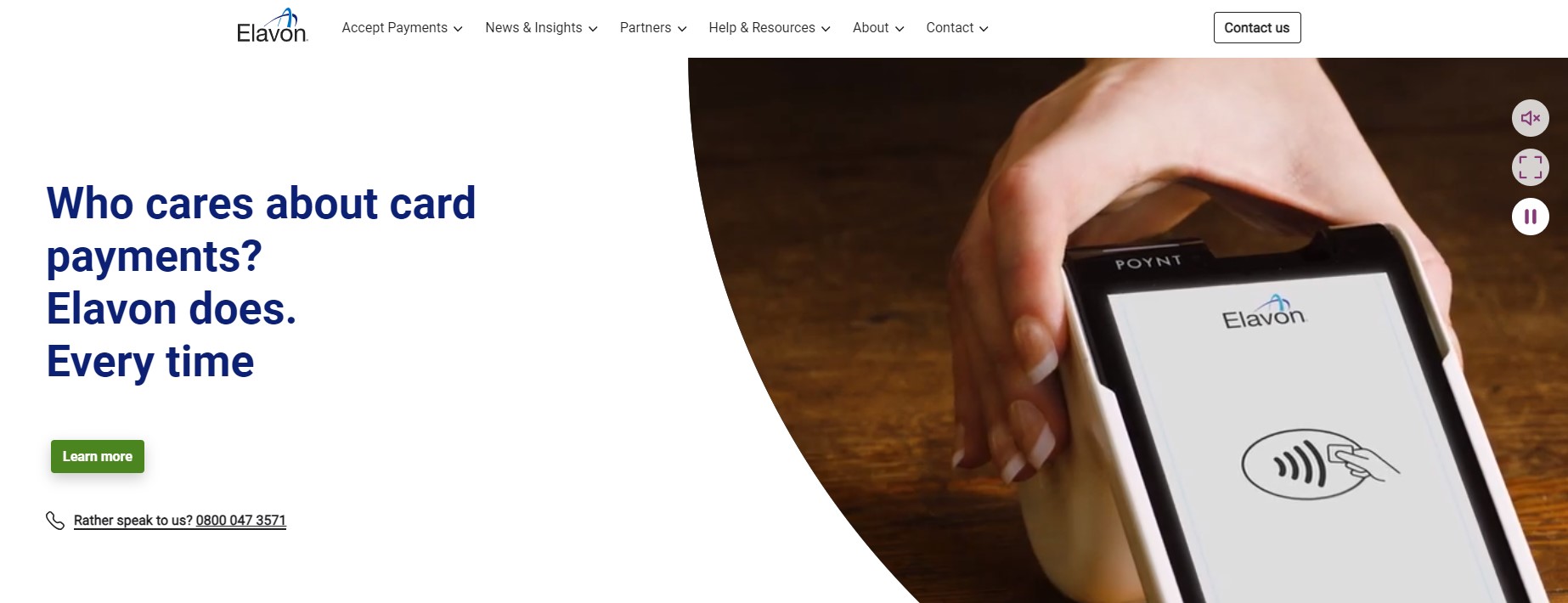
Elavon is a global payment processor known for its integrated payments technology. It serves businesses of all sizes, offering a secure and innovative partnership for online, mobile, and in-person transactions. With more than 500 direct sales team members and an extensive channel network, Elavon is dedicated to providing businesses with the tools they need to manage complex payment environments efficiently.
Ease of Integration
Elavon provides a variety of integration paths to suit different business needs. These include direct certification, fully-integrated, semi-integrated, hosted, and gateway integration. This flexibility ensures businesses can leverage their existing connectivity and maximize ROI.
For those looking to customize their payment environment, Elavon offers APIs and SDKs, allowing secure coding to any payment type. Whether you’re coding in-store, online, or mobile payments, Elavon’s omnicommerce capabilities have you covered. For those without coding experience, no-code options are also available.
Security Measures
As a trusted choice in payment security and fraud mitigation, Elavon offers comprehensive solutions for PCI DSS Compliance Validation, ensuring businesses meet the necessary security standards.
Elavon is at the forefront of payment security, employing state-of-the-art solutions like encryption, tokenization, and fraud rules to protect data in transit and at rest. Their Safe-T™ solution provides authentication, encryption, and tokenization in one package.
Elavon’s approach includes verifying transactions with additional authentication layers, securing data with EMV, encryption, and tokenization, and assisting in validating PCI DSS compliance.
Transaction Fees
Elavon’s transaction fees are designed to be as accommodating as possible, considering the diverse needs of businesses.
Convenience Fees: Applicable to non-face-to-face transactions, these fees help offset the costs associated with card-not-present payments. Elavon supports a fixed-rate model that charges the same payment processing fee on every transaction, providing transparency and predictability.
Service Fees: For certain types of merchants, like those operating under grants or government funding, service fees offer a way to control costs associated with accepting card payments. These fees can be applied to all payment types and in various environments. They can be a flat fee or a percentage of the transaction, offering flexibility to match an organization’s cost model.
5. Revolut

Revolut is a cutting-edge financial platform designed to cater to the dynamic needs of modern businesses. With a focus on flexibility, innovation, and security, Revolut offers an array of integrations that streamline financial processes, from accounting to customer relationship management.
Ease of Integration
Revolut Business features a ‘Hub’ where you can explore and select from a range of apps to integrate with your account. Each app in the Hub comes with a detailed description, installation guide, and a direct link to the app’s website for more information.
Integration typically runs from the provider’s side, meaning the setup process is designed to be as straightforward as possible. After clicking ‘Get’ and following the guidelines, your Revolut Business account will be connected with the chosen app, enhancing your business’s financial management capabilities.
Security Measures
Revolut has been securely managing funds since 2015. Your money is held in safeguarded accounts with regulated banks or in high-quality liquid assets, and eligible deposits are protected up to £85,000 per bank.
Revolut Business employs a sophisticated fraud prevention system that flags high-risk transactions and alerts you, enabling you to quickly identify and stop potential scams.
Protecting your data is a top priority for Revolut. Rigorous identity verification during sign-up, combined with passcode and biometric account protection, ensures a high level of security.
Transaction Fees
Fees for international transactions and currency conversions are an important consideration for businesses operating globally. Revolut typically offers competitive rates in this area, but specifics should be confirmed based on your business activity and needs.
Revolut’s standard fees page provides detailed information on transaction fees, currency exchange fees, and other charges that may apply. It’s essential to review this information to understand the potential costs associated with using Revolut as your payment gateway.
6. GoCardless
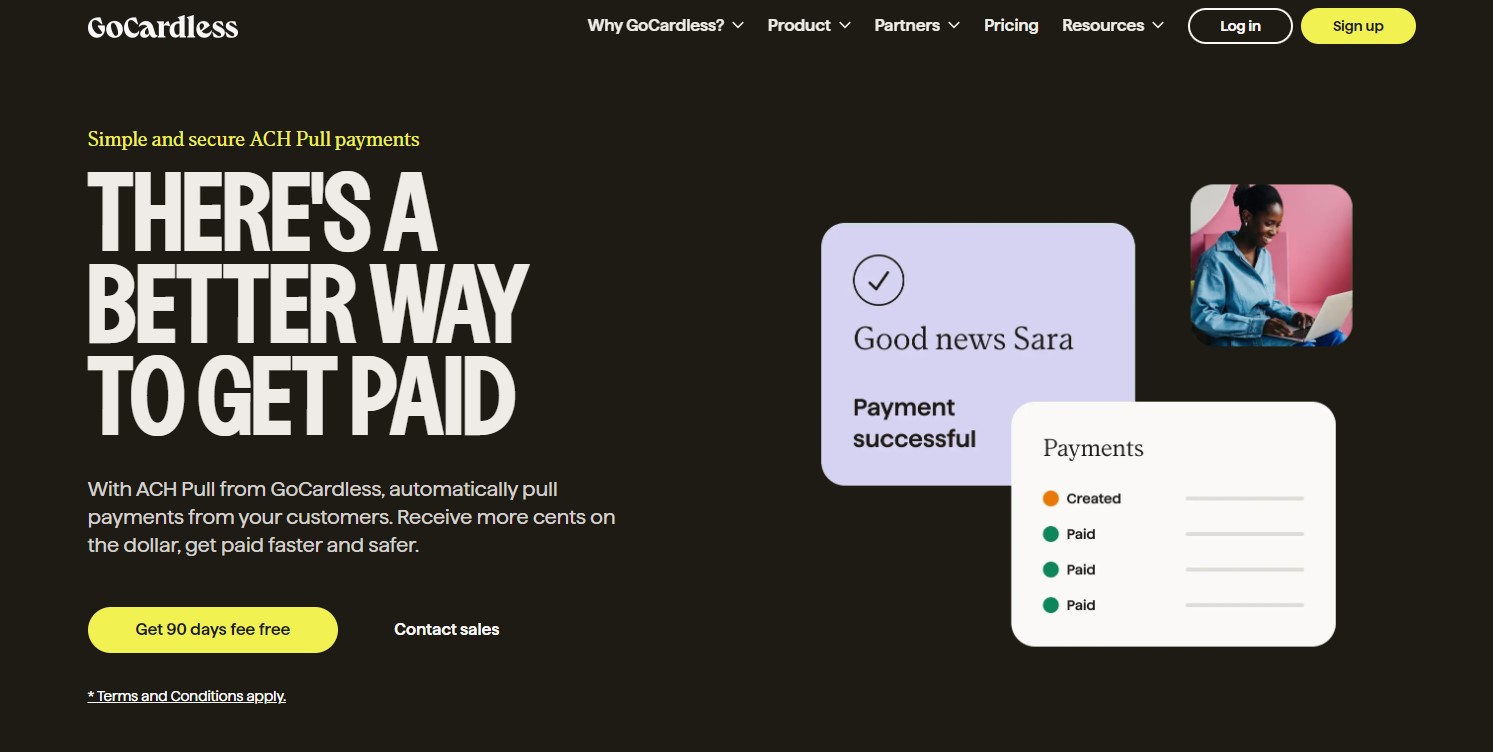
GoCardless is a payment gateway specializing in Direct Debit, providing a simple and efficient way for businesses to collect and manage recurring payments. It’s designed for both small businesses and large enterprises looking to automate payment collection and reconciliation.
With GoCardless, users can integrate a powerful Direct Debit system into their website, mobile app, or desktop software, customizing it to fit their specific needs.
Ease of Integration
The GoCardless API allows for easy interaction and integration. Developers can set up a sandbox account within minutes and start building a customized payment system.
GoCardless provides API client libraries in multiple languages, including Java, JavaScript, Python, Ruby, PHP, and .NET. These libraries simplify the process, reducing it to just a few lines of code. Alongside, detailed documentation, including a getting started guide and a full API reference with code examples, supports developers throughout the integration process.
Security Measures
Since 2016, GoCardless’s security protocols across business, services, and products have been audited and certified with ISO27001, a widely recognized international standard.
GoCardless’s global data risk management program is built to GDPR standards, applying privacy best practices to protect and respect personal data.
Customers are protected by the Direct Debit guarantee for instant refunds in case of transaction issues. Moreover, strong encryption protocols are used to secure data at rest and in transit, ensuring a high level of data protection.
Transaction Fees
GoCardless prides itself on having no hidden fees, providing clear and upfront pricing for its services.
Typically, GoCardless charges a percentage of the transaction amount as a fee. This fee structure is designed to be cost-effective, especially for recurring payments. For businesses with a high volume of transactions, GoCardless offers volume discounts, making it more economical as your usage increases.
For the most accurate and up-to-date information on fees, businesses should refer to the GoCardless pricing page.
How to Choose The Right Payment Gateway for Your Business
When choosing an online payment gateway in the UK, several key factors come together to influence your decision, ensuring a smooth, secure, and efficient transaction process both for your business and your customers. Here’s how you can approach this choice:
Variety of Payment Methods
A good payment gateway should cater to the diverse preferences of your customers, offering a range of options like credit cards, debit cards, digital wallets, and direct bank transfers. The importance of this variety cannot be overstated; you don’t want to lose a customer simply because their preferred payment method isn’t available.
Additionally, staying abreast of emerging payment trends and incorporating them into your platform can give your business a competitive edge.
Compatibility
The selected payment gateway must seamlessly integrate with your e-commerce platform and bank account to avoid any technical glitches that might interrupt transactions. This compatibility ensures a smooth operational flow, crucial for maintaining a professional and reliable service.
Before finalizing a gateway, verify its integration capabilities with your existing systems and ensure it supports smooth fund transfers to your business bank account.
Customizability
The gateway you choose should offer a straightforward and streamlined transaction process. A complicated procedure can be a deterrent for customers and can lead to cart abandonment. Moreover, having the option to customize the payment process and interface not only enhances the user experience but also reinforces your brand’s identity and trustworthiness.
Therefore, look for a gateway that balances simplicity with the flexibility to tailor the experience to your brand.
Security
Security is paramount in online transactions. Opt for a payment gateway that employs robust security measures such as encryption, tokenization, and adherence to international standards like PCI DSS to protect sensitive data.
The gateway should also have effective mechanisms to detect and prevent fraudulent activities, ensuring the safety of your transactions. It’s crucial to choose a provider that takes security as seriously as you do, offering support and solutions in case of any security breaches.
Pricing
The cost of the payment gateway is a significant consideration and should align with your financial capabilities. Understand the fee structure, which may include transaction fees, monthly fees, and any other additional costs.
It’s essential to choose a gateway that offers the necessary features within your budget, but also consider the long-term scalability. As your business grows, the gateway should be able to accommodate increased transaction volume and complexity without exorbitant costs.
In conclusion, choosing the right payment gateway involves a careful balance of functionality, cost, security, and compatibility. By considering these factors holistically, you can select a payment gateway that not only meets your current needs but also supports and grows with your business in the long run.

